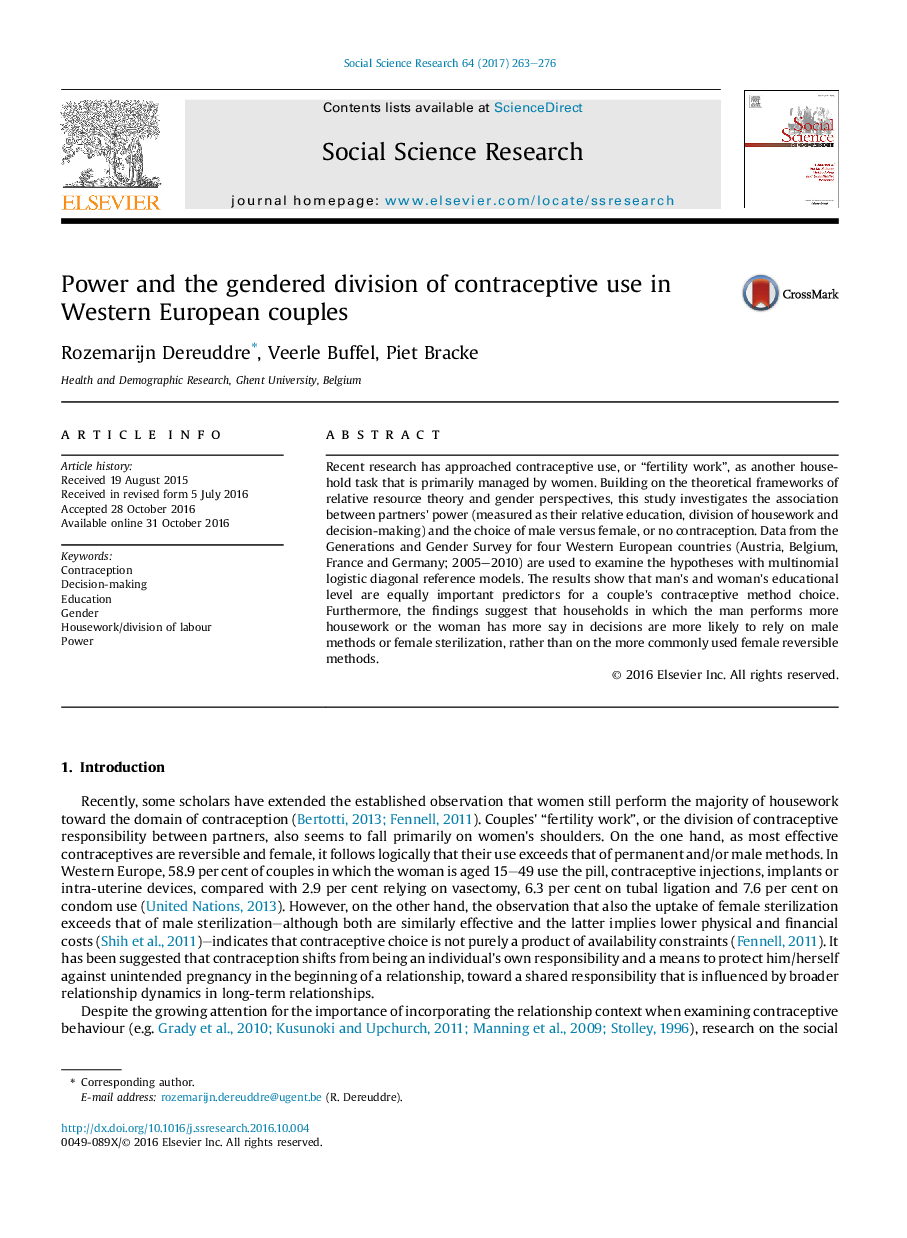| Article ID | Journal | Published Year | Pages | File Type |
|---|---|---|---|---|
| 5047144 | Social Science Research | 2017 | 14 Pages |
â¢We approach contraception as another household task primarily managed by women.â¢Both partners' absolute education is equally important for couples' contraception.â¢Male involvement in housework is associated with male method use and tubal ligation.â¢Women's decision-making power is related to male method use and tubal ligation.
Recent research has approached contraceptive use, or “fertility work”, as another household task that is primarily managed by women. Building on the theoretical frameworks of relative resource theory and gender perspectives, this study investigates the association between partners' power (measured as their relative education, division of housework and decision-making) and the choice of male versus female, or no contraception. Data from the Generations and Gender Survey for four Western European countries (Austria, Belgium, France and Germany; 2005-2010) are used to examine the hypotheses with multinomial logistic diagonal reference models. The results show that man's and woman's educational level are equally important predictors for a couple's contraceptive method choice. Furthermore, the findings suggest that households in which the man performs more housework or the woman has more say in decisions are more likely to rely on male methods or female sterilization, rather than on the more commonly used female reversible methods.
